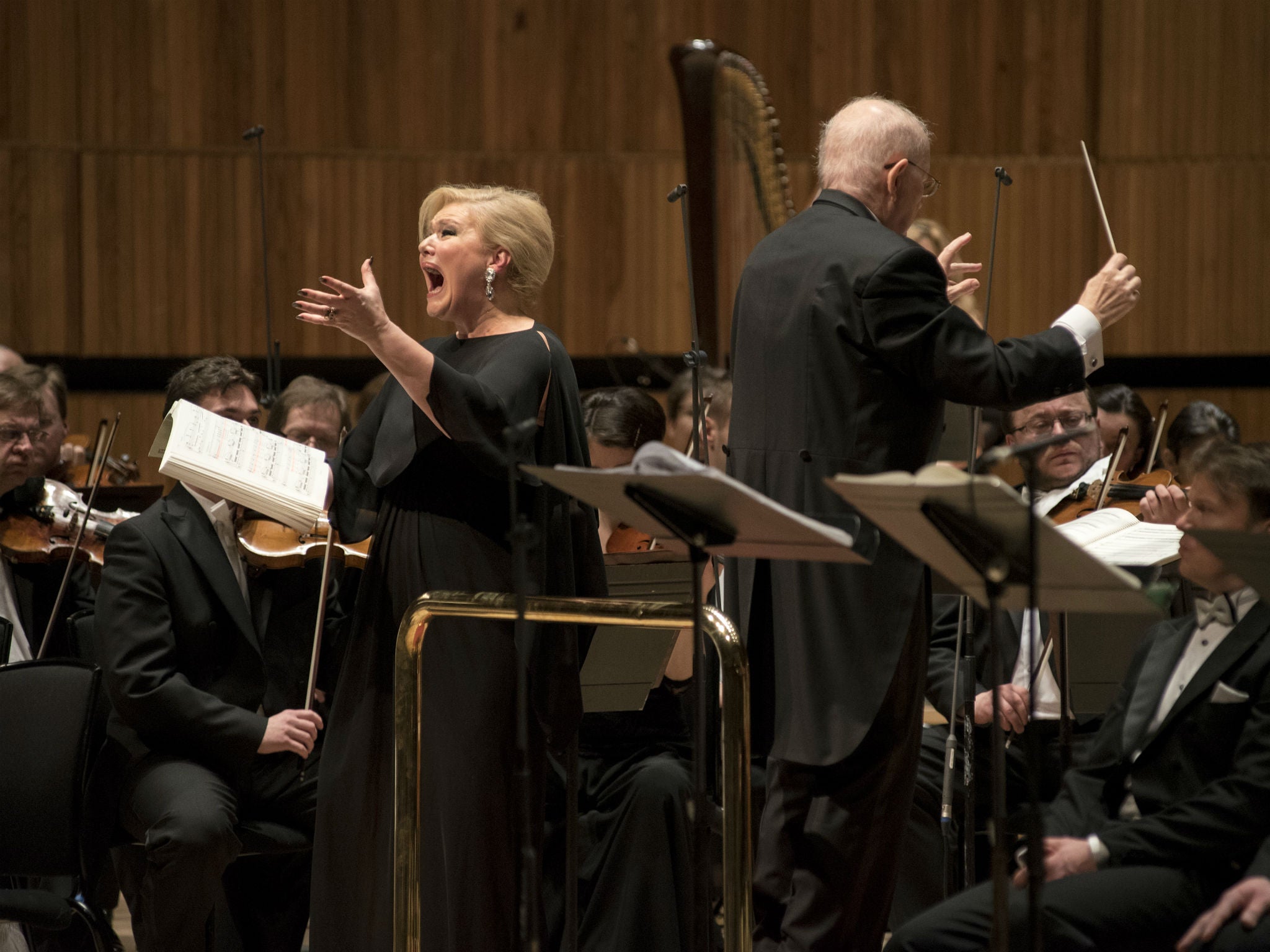Jenůfa, South Bank, opera review: 'Music of surpassing beauty'
Finnish soprano Karita Mattila is a powerfully haunted Kostelnička

Your support helps us to tell the story
From reproductive rights to climate change to Big Tech, The Independent is on the ground when the story is developing. Whether it's investigating the financials of Elon Musk's pro-Trump PAC or producing our latest documentary, 'The A Word', which shines a light on the American women fighting for reproductive rights, we know how important it is to parse out the facts from the messaging.
At such a critical moment in US history, we need reporters on the ground. Your donation allows us to keep sending journalists to speak to both sides of the story.
The Independent is trusted by Americans across the entire political spectrum. And unlike many other quality news outlets, we choose not to lock Americans out of our reporting and analysis with paywalls. We believe quality journalism should be available to everyone, paid for by those who can afford it.
Your support makes all the difference.Given that Jenůfa was Janácek’s breakthrough opera, where he evolved his instantly recognisable musical language – forged from the distinctive melody of Moravian speech patterns and inflexions – the South Bank’s concert performance provided an unmissable opportunity to hear the work performed by native Czechs, with Finnish Karita Mattila as a powerfully haunted Kostelnička.
Jenůfa (a queenly Adriana Kohútková), pregnant and in love with an unreliable Števa (Jaroslav Březina) is abandoned by him. His half-brother Laca ends up slashing Jenůfa’s cheek in an anguished access of love and frustration (a boyishly clear tenor in Aleš Briscein), and whose recoiling from marrying Jenůfa on learning of the child’s existence drives the Kostelnička, Jenůfa’s step-mother, to drown the baby, in the hope of preserving what she believes is Jenůfa’s only chance of happiness. Only Janácek, basing his libretto on a play by a female playwright and bereaved father himself, would have depicted this character musically with such tenderness.
In Czech the stress invariably falls on the first syllable of a word, and hearing native singers instantly makes sense of Janácek’s every musical line. Likewise, the Czech Philharmonic under Jiří Bělohlávek have this music in their blood, allowing Janácek’s jagged, swaggering folk rhythms to suddenly bloom into music of surpassing beauty.
Join our commenting forum
Join thought-provoking conversations, follow other Independent readers and see their replies
Comments